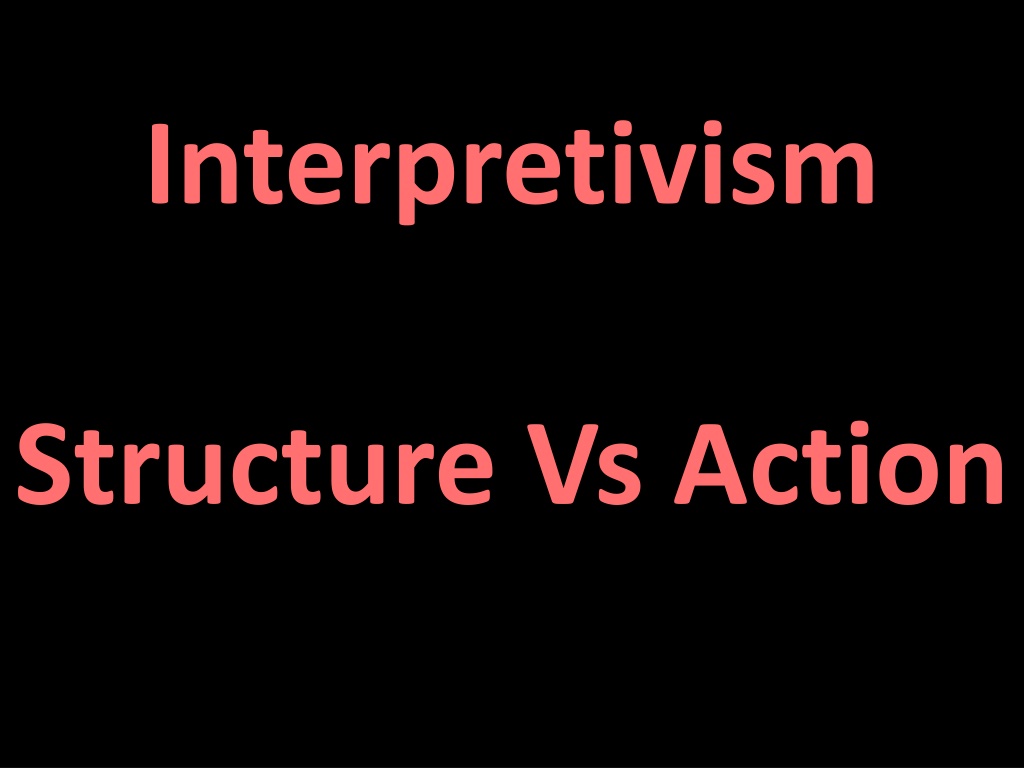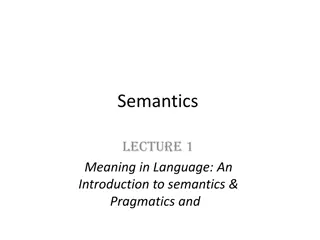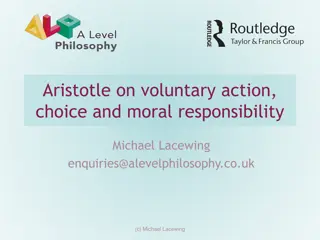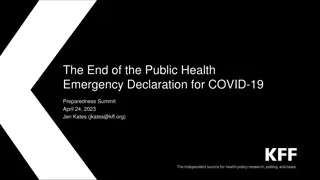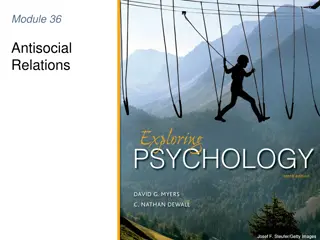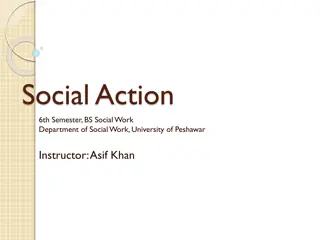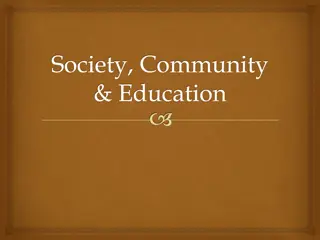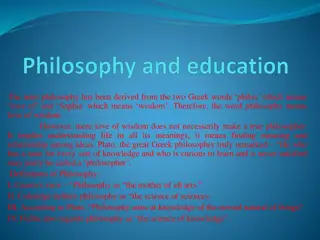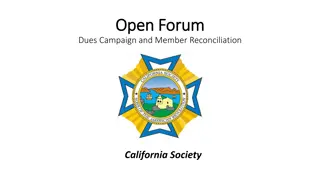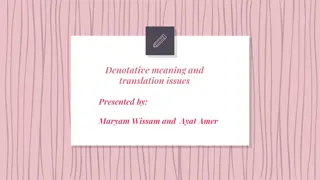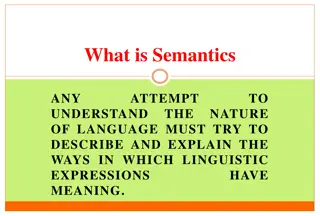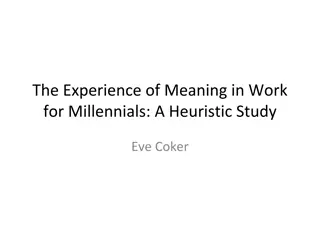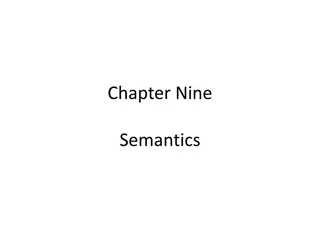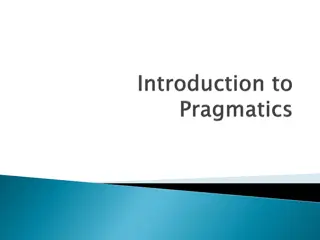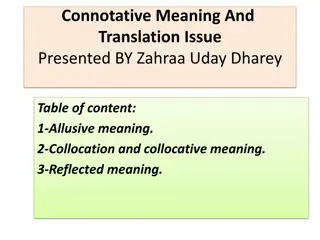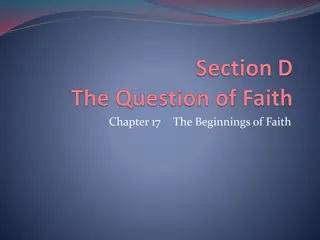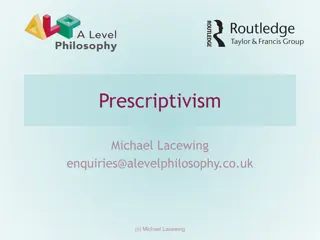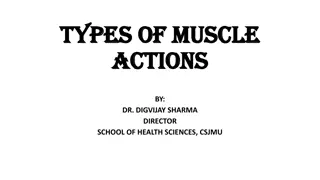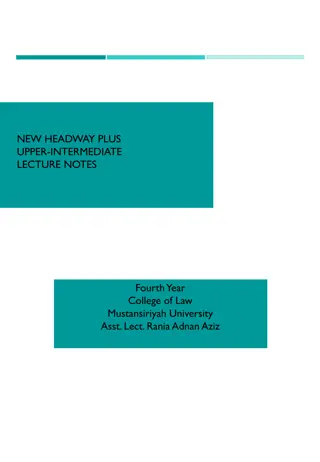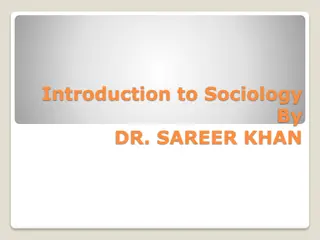Understanding Interpretivism: Meaning, Actions, and Society
Interpretivism emphasizes interpreting meaningful social actions over cause and effect in sociology. It rejects positivist approaches, focusing on human autonomy and how individuals construct their world through chosen meanings. Examples illustrate how people's actions are influenced by their interpretations of situations, highlighting the importance of internal meanings in understanding human behavior.
Download Presentation

Please find below an Image/Link to download the presentation.
The content on the website is provided AS IS for your information and personal use only. It may not be sold, licensed, or shared on other websites without obtaining consent from the author. Download presentation by click this link. If you encounter any issues during the download, it is possible that the publisher has removed the file from their server.
E N D
Presentation Transcript
Interpretivism Structure Vs Action
Interactionism: Essay Titles 1. Assess the contributions interactionism has made to our understanding of society. (33 marks) 2. Assess the extent to which structure/agency debate has been resolved. (33 marks) 3. Evaluate whether our behaviour is due to structure or action? (33 marks) 4. Assess the extent to which humans are puppets of society (33 marks)
Starter: Post-it Note Challenge Write down concepts / writers we associate with interactionism / interpretivism. SCLY 1 SCLY 2 SCLY 3 SCLY 4
Some clips https://www.youtube.com/watch?v=jFQIIM8IRZU&list=PLhMMvN4zZVbe- aUu9DlZ1ANaVMnFwrNsE https://www.youtube.com/watch?v=6E66iDghFkg https://www.youtube.com/watch?v=yJrnwOPC2f8 https://www.youtube.com/watch?v=Ql0XPwtfFGY
In a nutshell Interpretivists believe sociology should not model itself on the natural sciences. The positivist approach is unsuited to human beings. The subject matter of sociology is meaningful social actions (interactionism). It is important to interpret these actions and make sense of them. Interpretivists say sociology is about internal meanings NOT cause and effect as cause and effect does not always apply to humans.
Example: A car approaches a red light and the driver thinks Cause Oh, red light That means I have to slow down and stop Effect
Is it always that simple? I m late for work I ll jump it I WANT TO RUN THAT OLD LADY DOWN!!!! These examples demonstrate that how people act is often determined by the meaning they give to the situation, and how they choose to respond to it. I m following that car, I can t lose it
If a motorist does stop, it is not because of an external force determining their behaviour, it is because they have chosen to stop. Interpretivists do not see individuals as puppets on a string, that are manipulated by external social facts . We are autonomous, and we construct our world by the meanings we choose to give things.
G.H. Mead (Social Action Theorist) He argues that people have free will and choice. They are not like rocks in the natural sciences. Rocks are unconscious, and dependent on external factors/stimuli for change. Humans are conscious beings who interpret the meaning of a stimulus, then choose how they act upon it. An apple does not choose when it falls from the tree. But a human could choose whether or not to eat the apple and explain why they made that choice.
Doorbell Cause = Press button Effect = Ringing sound Human Cause = doorbell rings Effect = ?
Wow, I feel like I understand your plight so much better now Verstehen
Verstehen: to understand To discover the meanings people give to their actions, we need to see the world from their viewpoint. Interpretivists abandon detachment and objectivity favoured by positivists. Weber argued that we must put ourselves in the place of the actor in order to achieve verstehen empathetic understandings.
So, which methods help us achieve Verstehen and why? Task: List the methods Interpretivists favour Task: Now create a detailed paragraph that explains why they favour these methods (in your own words).
Social Action Perspectives Also known as Interpretivism Micro Sociology
Overview 4 variations Social Action Symbolic Interactionism Phenomenology Ethnomethodology
Social Action - Weber People hold meanings about the world and consciously act on the basis of those meanings Weber saw behaviour in terms of the meanings people attach to actions Verstehen the aim of sociological investigation should be the creation of an understanding of the meanings, motives and values involved in social actions. Getting behind people s actions, finding out why they do what they do. Protestant Ethic and the Spirit of Capitalism Weber took the position of a Calvinist believer What meanings did Calvinists hold about the world? What actions did they take based on these meanings?
Symbolic Interactionism Focuses on small-scale interactions rather than on the social structure How meanings are constructed through social interaction People have a degree of control and influence over social behaviour
Symbolic Interactionism - Mead People define and interpret the world through the meanings they attach to it Reality (what is real) is therefore a subjective reality (a matter of opinion or interpretation) The meanings people hold are constructed from and communicated in the form of symbols Social life is a constant stream of symbolic communication with meanings being constantly negotiated and re-negotiated People can do this by being able to take the role of the other
Symbolic Interactionism - Goffman Dramaturgical analogy life is like a stage . As in the theatre, roles are not fixed. People can interpret their roles in many different ways People are aware they are doing this and life is a process of self-presentation We use props, stages etc. to control how we appear to others. This is made possible by our ability to see ourselves as other see us. Asylums participant observation Institutionalized , disculturalisation , notion of self
Symbolic Interactionism - Becker Labelling theory Self-fulfilling prophecy Master status You know this one :-)
Phenomenology Husserl and Schutz Phenomenology internal workings of the human mind and the way humans make sense of and classify the world around them. We have a series of typifications (categories) we use to organise the world as we see it We have a store of common-sense knowledge which helps in everyday interactions. We assume everyone has these. Phenomenologists believe sociology should be concerned with things on the surface not things that are hidden
Phenomenologists DONT look for the causes of phenomena, they look at how we CATEGORISE phenomena For example, Atkinson (a phenomenologist) looked at suicide. His research was concerned with how coroners reached their verdicts of suicide and what they used to make these decisions (notes, mode of death, location, life history) The categories and verdicts are therefore social constructions based on common sense typifications of how we see the world.
Ethnomethodology - Garfinkel The study of the methods used by people to construct, account for and give meaning to their social world. (Atkinson and the methods coroners use in suicide) Unwritten rules govern everyday situations Deny there is a real thing called society with a structure, instead we actively construct our social world every time we interact with others Conversation analysis (Saks), naturalistic (disruptive) experiments (Garfinkel)
Links to issues Suicide Douglas and coroners interpretations Labelling education, crime, media Choice of research methods The issue of value-free sociology The social construction of crime statistics Weber Protestant Ethic and Spirit of Capitalism
Evaluation Where do meanings and labels come from? The similarity of meanings and labels suggest they come from a social structure. If individuals have such influence, why do people act in such similar ways? Social structure again? Social behaviour is not randomly created, it is influenced by the social and historical context Research methods used do not meet scientific criteria
Tip: Structure and Agency This is a commonly referred to debate in sociology. It means structural theories VS social action theories. Obviously they look at society in different ways (octopus picture) Are the actions of individuals the prime social phenomena or are social structures the most important aspect of social activity?
Structure VS Agency Many people think the structure/agency debate is pointless, because most sociologists deal in both aspects. However, the major perspectives do fit into two the two main camps. The biggest attempt to dissolve the debate was developed by Giddens (late-modernist) His theory is called structuration, and it stresses that the inter-dependence of structure and agency. By this, he means that structures (class, family, law, religion) are created by the patterned activities of individuals, who call upon structures to perform those actions.
Weber Mead Becker Goffman Symbolic Interactionism (dramaturgy) Husserl Phenomenology Schutz Phenomenology Garfinkel Ethnomethodology Giddens Structuration (attempt to resolve the debate) Soc Action (The founder ) Symbolic Interactionism Symbolic Interactionism (labelling)
Symbolic Interactionism How meanings are constructed through social interaction. How we shape the world through interaction. People have a degree of control and influence over social behaviour Phenomenology Phenomenology internal workings of the human mind and the way humans make sense of and classify the world around them. Ethnomethodology The study of the methods used by people to construct, account for and give meaning to their social world
Who would you give flowers to? Who would you give red roses to? If your gave your Grandma red roses would it mean the same as if you gave your girlfriend red roses? Would your Grandma/Girlfriend thank you in the same way? Meanings are a product of social interaction Meanings are handled through a process where people try to make sense of situations.
Who would you give flowers to? Who would you give red roses to? If your gave your Grandma red roses would it mean the same as if you gave your girlfriend red roses? Would your Grandma/Girlfriends thank you in the same way? Meanings are a product of social interaction Meanings are handled through a process where people try to make sense of situations.
Whos ever been in a play? What are you required to do? What roles do you play? How do you modify your performance?
Social Action Theory Says we act , we do not react We make our own choices and take our own action. We are not controlled by a social structure (unlike structural theories) Social action theorists see peoples actions as key to studying society Microsociology small scale Society is constructed from peoples meanings, interpretations, behaviours and negotiations.
SOCIAL ORDER is SOCIALLY CONSTRUCTED People want to believe there is order in society so they behave towards others in a way that convinces them that there is order. E.g., following social norms such as being polite and not stealing from one another. Even if we break a law, the law has been socially constructed by people and their interpretations. The same act can get one person arrested and imprisoned, but just a fine for someone else.
Social action theorists are INTERPRETVISTS because they say sociology cannot be objective it is always biased People will always interpret things differently It is subjective human behaviour cannot be predicted.
So, Durkheim's suicide typology would be rejected + Integration According to SA theorists, social facts cannot exist +Regulation - Regulation - Integration
Criticisms It is too subjective everything is a matter of interpretation It is relativist all points of view are stripped of value It ignores the wider social context (structures) that individuals act (or react) in (e.g., poverty) It doesn t explain social norms. It argues that we just have them because we desire order.
Structuration Where Structuralism and Social Action theory meet! Giddens is a structuration theorist People are subject to restrictions and pressures generated by social structures and systems (e.g. laws) But, individuals respond to these in different ways (the SA bit) Individuals have an awareness of the social rules and structures and have some level of choice about how to react to them. Social structures and systems can be changed by the actions of individuals say structuration theorists
Mindmap task: Match up the theorist to the key term and elaborate on what is means STRUCTURATION DRAMATURGICAL MODEL SYMBOLLIC INTERACTIONISM ETHNOMETHODOLOGY THE SELF ( I , ME ) MEAD GARFINKEL GIDDENS GOFFMAN BLUMER
Whos ever been in a play? What are you required to do? What roles do you play? How do you modify your performance?
Starter Discuss what factors may influence why you send your child to a particular school.
Catchment area Siblings attended Good exam results Most local, could walk Good reputation Subject specialism Single sexed school Passed grammar exam
In pairs Take the list we have just discussed, and explain which ones would be linked to structural factors and which ones are to do with individual choice.
Structure and agency To summarise: Structural approaches emphasise how people are influenced by major structural forces. Social action studies may describe how individuals operate in society as relatively free agents, creating identities for themselves.
Social action theory Social action theorists believe that the best approach to the understanding of society is by studying small groups. Weber
AO2 to Structuralism One of the criticisms made of some structuralist research, such as work by Functionalists and Marxists, has been that all-embracing theories may be thought of first and then evidence selected to back them up. Instead SA theorists recommended doing close and detailed observation of some aspect of social life first and then deriving a grounded theory from their findings.
Bottom Up A good example of grounded theory is the work of David Gillborn. He carried out observations over 2 years in a comprehensive school. This approach can be described as bottom-up, because the sociologist studies a specific set of behaviours, experiences or attitudes but then identifies their wider relevance by relating them to some aspect of the social structure.
Weber and Social Action Weber argues that we should avoid generalising theories because people are not determined by general laws. Social science should proceed by understanding human action. Weber s work has been influential in the development of the sociology of everyday life. Weber s approach lead to a view called methodological individualism which focuses on how people actively engage in social interaction. Structures do not determine our behaviour. Weber is critical of Marx, and believes that it is individuals that shape the development of society.
